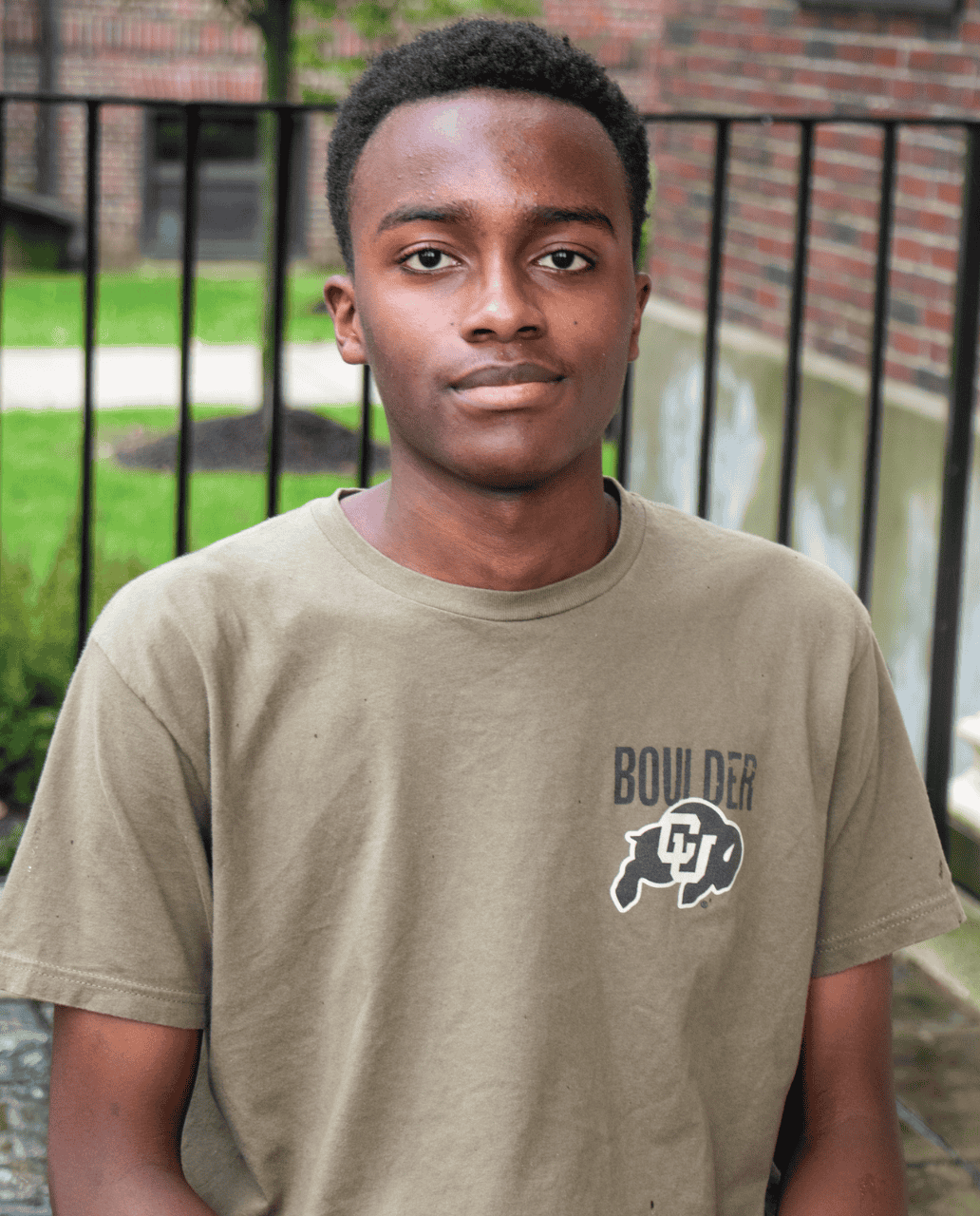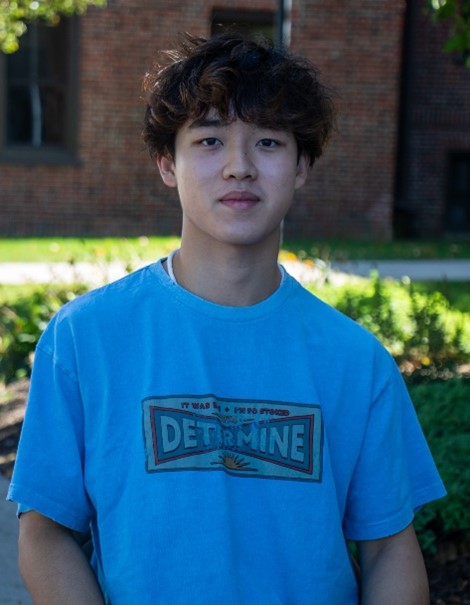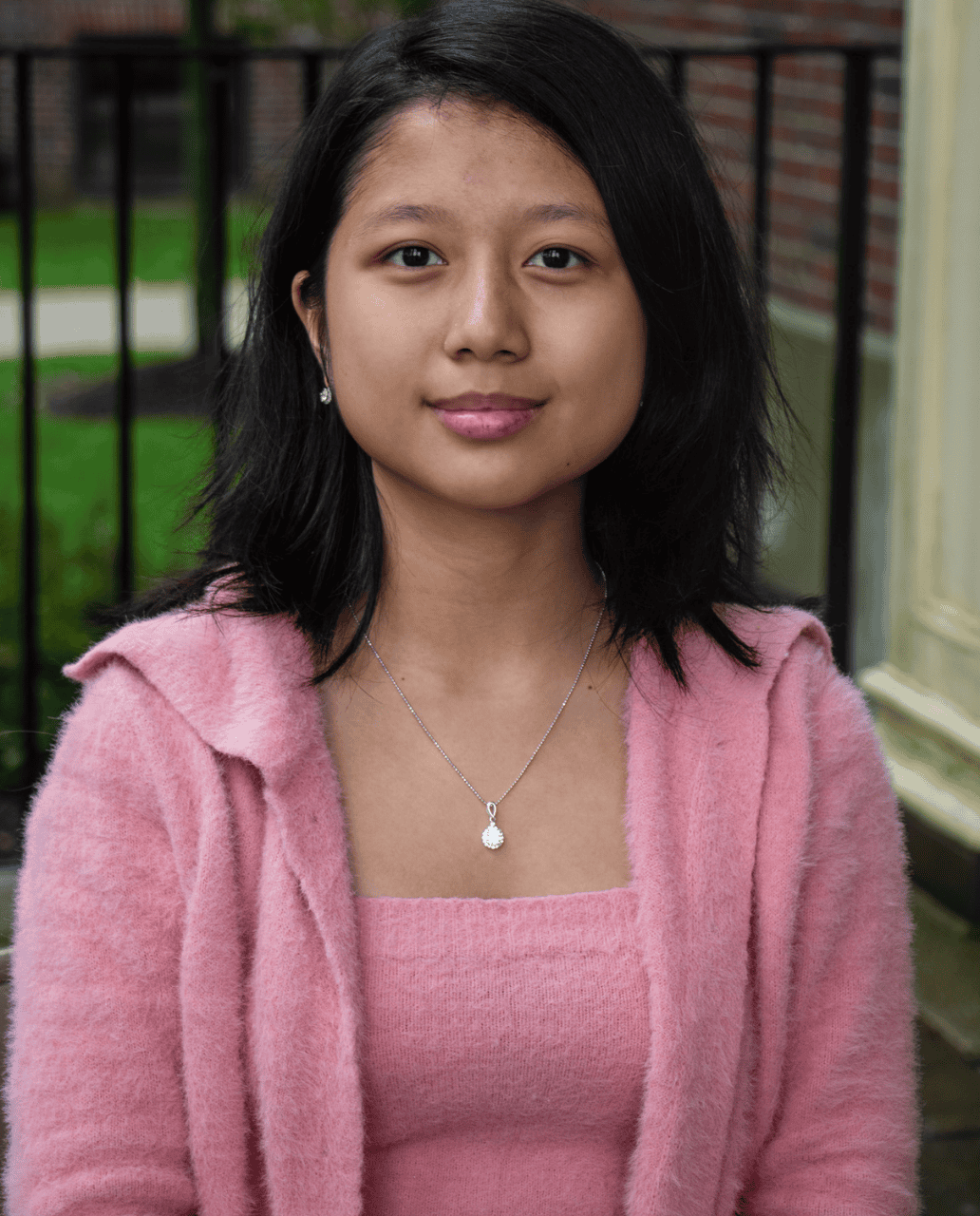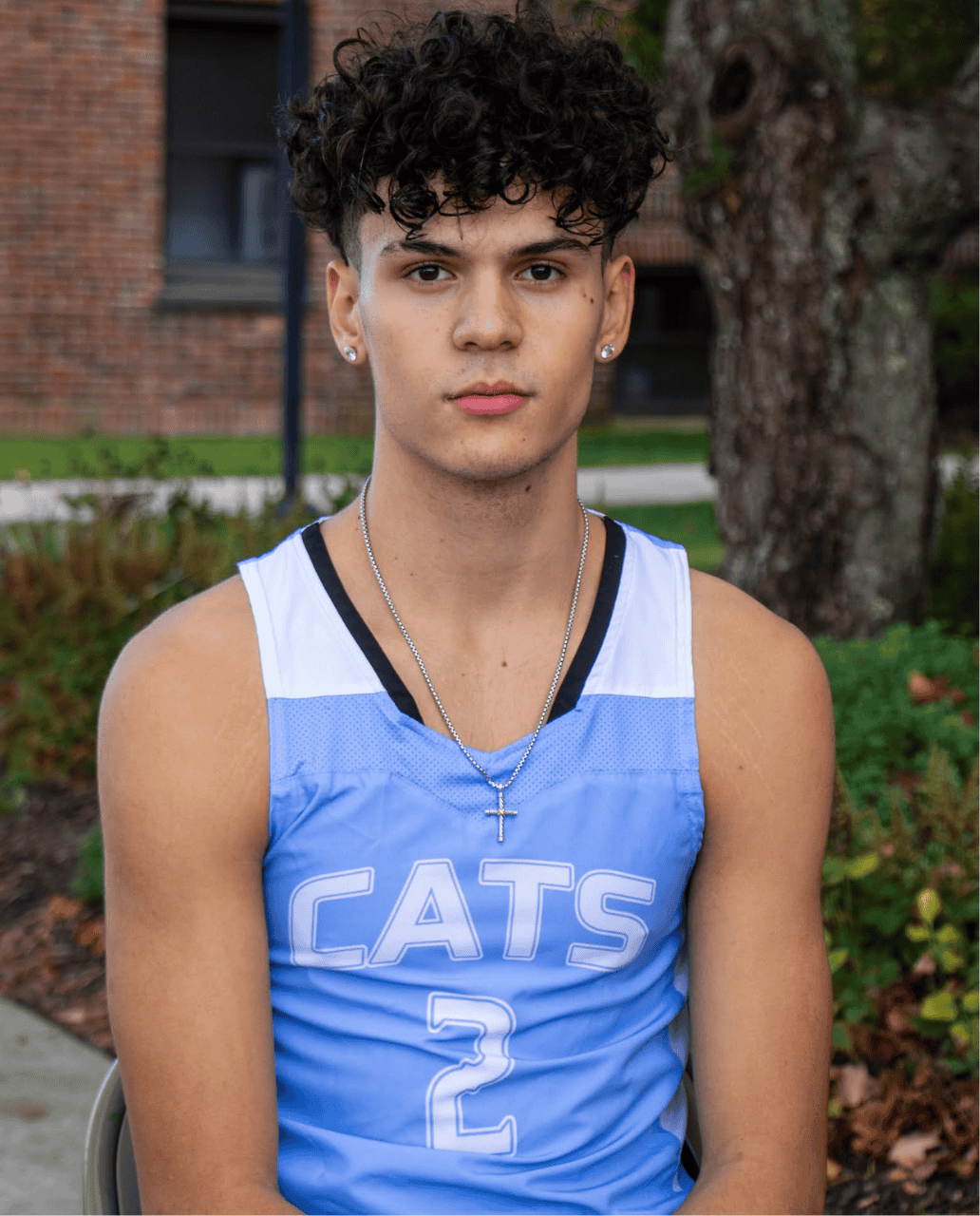The CATS Boston Mathematics Department is comprised of dedicated teachers who offer a wide range of exciting and challenging electives. Our teachers pride themselves on reaching all levels of math learners through engaging lessons, projects and hands-on learning.
Students prepare for the Advanced Placement test to gain college credit while learning topics in Single Variable Calculus. Through this course, students are introduced to limits, differential equations, the derivative, points of tangency, slope fields, optimization problems, the fundamental theorem of calculus, mean value theorem, integration, application of calculus, and a variety of other topics that will provide real world examples as to the importance of calculus. The textbook for the course is Rogawski’s Calculus for AP.
Taking the Advanced Placement test is a mandatory component of this course. Upon completing this course, students are eligible to take Multivariable Calculus or an independent study in mathematics.
To take this elective, returning students require ESL Level 4 or higher, an A- or higher in previous course and the recommendation of their previous instructor. New students will need ESL Level 4 and suitable placement test results.
The Honors Algebra II course covers the same material as the Algebra II College Prep class, but moves at a faster pace and covers additional topics. As Honors students, you will receive more challenging assignments and projects, with the goal of developing your critical thinking skills and formal mathematical thought processes.
To take this elective, returning students require the recommendation of their current math teacher, while new students need suitable placement test results.
The Honors Pre-Calculus class covers the same material as the College Prep class but moves at a faster pace and covers additional material as a preview of calculus. Some additional topics include polar functions, sequences and series, and an introduction to limits and derivatives. Honors students also receive more challenging assignments and projects with the goal of further developing their critical thinking and logic skills and keeping them fully engaged.
To take this elective, returning students require an A- or higher in the College Prep Algebra II, a B or higher in Algebra II Honors, ESL Level 3 or higher and a recommendation from their previous instructor. For new students, they will need ESL Level 3, the successful completion of Algebra II and suitable placement test results.
Honors Calculus is an introduction to differential and integral calculus with a single variable. Students are introduced to limits, derivatives, integrals, the fundamental theorem of calculus, the mean value theorem, differential equations, optimization problems, and a variety of other topics and their applications to real-world problems. The course includes most of the material in AP Calculus but at a more relaxed pace, and the AP exam is not a component of this course.
To take this elective, returning students must be recommended by their previous instructor. New students require ESL Level 3 and suitable placement test results.
Students in this course continue their study of calculus begun in AP Calculus AB elective and complete their preparation for the BC level of the Advanced Placement examination in calculus to be taken in the spring. Coverage includes integration by parts and by partial fractions, improper integrals, first order separable differential equations, infinite series and power series, and parametric and polar coordinates.
Students continue their study of mathematics by extending their knowledge to the calculus of three-dimensional space. Partial differentiation and multiple integration are the main areas of study. Students must have a TI-84 Plus graphing calculator and must take the College Board BC Calculus exam at the end of the year.
To take this elective, students must have successfully completed the AP Calculus AB elective and be recommended by their Calculus teacher.
This is a course for students who have already completed Calculus BC and would like to study more calculus. This course is equivalent to a college-level semester of Differential Equations. Topics covered are first order differential equations, second order linear equations, higher order linear equations and series solutions of second order linear equations. This independent study course will focus on problem-solving and project-based applications of differential equations.
In this course, students study the foundations of Algebra and Geometry. Students build an understanding of variables, expressions, and equations. They learn to write and solve linear equations and then apply equations to angles, triangles, and polygons in Geometry. Students learn to work with equations of lines and segments on the coordinate plane, as well as solve systems of equations using various methods. Students also explore basic statistics.
In this course, students continue their study of Algebra and Geometry, completing the second semester of each subject. Students study similarity, right triangles, trigonometry, area, and volume. They also study exponents, quadratic functions, and polynomials. Students continue their study of statistics, including probability, and explore patterns and sequences as well.
To take this elective, students must have successfully completed Integrated Math I or through a satisfactory placement interview.
This course builds on what students have learned in Algebra I. Students in the course develop advanced algebra skills such as solving systems of equations, factoring advanced polynomials, and understanding imaginary and complex numbers. Students also study matrices, rational functions, and conic sections. The focus of each topic is on problem-solving and developing formal mathematical language in English. The mathematical training in this course is important as preparation for the ACT and SAT, as well as future courses in Pre-Calculus and Calculus.
To take this elective, students must have successfully completed Integrated Mathematics 1 and 2 or through satisfactory placement interview.
This course provides students with the skills they need to study calculus. It highlights the key methods from algebra, trigonometry, and geometry that are needed for further study. The central unifying concept is the mathematical function. The course focuses on both conceptual understanding and problem-solving ability and provides students with a deep understanding of exponential, logarithmic, polynomial, rational, and inverse functions. It also offers an introduction to sequences and series. The course makes extensive use of the TI-84 graphing calculator.
To take this elective students must have successfully completed Algebra II
This course provides a basic introduction to Statistics. It is recommended for students who are interested in business, social science, human resources, and criminal justice, and it provides an excellent preparation for any career. Topics include descriptive statistics, probability, probability distribution, normal distribution, hypothesis testing, estimates and sample sizes, the chi square distribution, correlation, and regression. The course is a critical thinking course, as well as an analytical one, where students do many short-term projects and a long-term project. This course also provides an overview on how to collect, analyze, interpret, and display data from various real-life sources and topics, emphasizing pop culture, politics, and the sporting world.
To take this elective, students must have successfully completed Algebra II.
Students prepare for the Advanced Placement test to gain college credit while learning topics in Single Variable Calculus. Through this course, students are introduced to limits, differential equations, the derivative, points of tangency, slope fields, optimization problems, the fundamental theorem of calculus, mean value theorem, integration, application of calculus, and a variety of other topics that will provide real world examples as to the importance of calculus. The textbook for the course is Rogawski’s Calculus for AP.
Taking the Advanced Placement test is a mandatory component of this course. Upon completing this course, students are eligible to take Multivariable Calculus or an independent study in mathematics. To take this elective, returning students require ESL Level 4 or higher, an A- or higher in previous course and the recommendation of their previous instructor. New students will need ESL Level 4 and suitable placement test results.
The purpose of AP Statistics is to demonstrate a range of relevant everyday issues that can be addressed with the help of statistical analysis. This course is meant to expand the understanding of data collection and the role of statistics in making inferences from data. Applications from many realistic contexts such as business and economics, the social and physical sciences, healthcare, education, engineering, and leisure activities are examined throughout the course. Students use realistic data that they collect and analyze for class assignments and projects.
Preparation towards the AP test highlights the four major disciplines within the Statistics class: Exploring Data, Sampling, Probability, and Inference. The primary textbook used is The Practice of Statistics for AP, 4th Ed. by WH Freeman.
To take this elective, returning students require ESL Level 4 or higher, an A- or higher in previous math course and the recommendation of previous instructor. New students need ESL Level 4 and suitable placement test results.
Honors Calculus is an introduction to differential and integral calculus with a single variable. Students are introduced to limits, derivatives, integrals, the fundamental theorem of calculus, the mean value theorem, differential equations, optimization problems, and a variety of other topics and their applications to real-world problems. The course includes most of the material in AP Calculus but at a more relaxed pace, and the AP exam is not a component of this course.
To take this elective, returning students must be recommended by their previous instructor. New students require ESL Level 3 and suitable placement test results.
Students expand their understanding of data collection and the role of statistics in making inferences from data. Applications from many realistic contexts such as business and economics, the social and physical sciences, healthcare, education, engineering, and leisure activities are examined throughout the course. Students use realistic data that they collect and analyze for class assignments and projects. The course includes most of the material in AP Statistics but at a more relaxed pace, and the AP exam is not a component of this course.
To take this elective, returning students require an A- or higher in CP Math course, a B or higher in previous Honors Math course, ESL Level 3 or higher and the recommendation of previous instructor. New students need ESL Level 3 and suitable placement test results.
Introduction to Abstract Mathematical Thought presents topics not previously covered in the traditional high school algebra to calculus sequence, including formal logic, set theory, number theory, and graph theory. This greatly enhances students’ understanding of topics included in the broader field of mathematics. While the topics in this course have some overlap with those covered in Discrete Mathematics, there is a much greater focus on constructing formal mathematical proofs.
Students will learn a variety of proof-writing techniques and approaches, including direct proof, proof by contradiction, proof by contrapositive, and proof by induction and disproof by counterexample. By viewing the mathematical world as a series of conjectures that must be proven or disproven, as opposed to theorems that are simply applied, students gain an insight into and appreciation for how the mathematics was developed. By the end of the course, students will have developed both the skills and mindset necessary for discovering new mathematics.
To take the elective, students must be recommended by their current math teacher. New students need suitable placement test results.
Students in this course continue their study of calculus begun in AP Calculus AB elective and complete their preparation for the BC level of the Advanced Placement examination in calculus to be taken in the spring. Coverage includes integration by parts and by partial fractions, improper integrals, first order separable differential equations, infinite series and power series, and parametric and polar coordinates.
Students continue their study of mathematics by extending their knowledge to the calculus of three-dimensional space. Partial differentiation and multiple integration are the main areas of study. Students must have a TI-84 Plus graphing calculator and must take the College Board BC Calculus exam at the end of the year.
To take this elective, students must have successfully completed the AP Calculus AB elective and be recommended by their Calculus teacher.
he Honors Geometry elective covers the same material as the Geometry CP course but moves at a faster pace and introduces additional topics. There is an increased emphasis on formal geometric proofs and logic. Theorems, postulates, and axioms are discovered and applied to proving why other concepts are true.
To take this elective students require a B+ or higher in Algebra I, the recommendation of current teacher and ESL Level 3 or higher.
The Honors Algebra II course covers the same material as the Algebra II College Prep class, but moves at a faster pace and covers additional topics. As Honors students, you will receive more challenging assignments and projects, with the goal of developing your critical thinking skills and formal mathematical thought processes.
To take this elective, returning students require the recommendation of their current math teacher, while new students need suitable placement test results.
The Honors Pre-Calculus class covers the same material as the College Prep class but moves at a faster pace and covers additional material as a preview of calculus. Some additional topics include polar functions, sequences and series, and an introduction to limits and derivatives. Honors students also receive more challenging assignments and projects with the goal of further developing their critical thinking and logic skills and keeping them fully engaged.
To take this elective, returning students require an A- or higher in the College Prep Algebra II, a B or higher in Algebra II Honors, ESL Level 3 or higher and a recommendation from their previous instructor. For new students, they will need ESL Level 3, the successful completion of Algebra II and suitable placement test results.
This is a course for students who have already completed Calculus BC and would like to study more calculus. This course is equivalent to a college-level semester of Differential Equations. Topics covered are first order differential equations, second order linear equations, higher order linear equations and series solutions of second order linear equations. This independent study course will focus on problem-solving and project-based applications of differential equations.
In this course, students explore shapes and their relationships to the two and three-dimensional world. Topics include triangles, quadrilaterals, polygons, circles, area, volume, congruency, similarity, and trigonometry. Students pay particular attention to measurements and calculations of real world applications. This course also further develops students’ algebraic skills as students apply their Algebra I knowledge to geometric concepts.
This course builds on what students have learned in Integrated Math classes and is intended for students not planning on studying Pre-calculus in the future. Students will continue their studies of linear, quadratic, exponential, and polynomial functions with particular emphasis on practical applications.
To take this elective, students must have successfully completed Integrated Mathematics II and through the recommendation of the teacher.
This course builds on what students have learned in Algebra I. Students in the course develop advanced algebra skills such as solving systems of equations, factoring advanced polynomials, and understanding imaginary and complex numbers. Students also study matrices, rational functions, and conic sections. The focus of each topic is on problem-solving and developing formal mathematical language in English. The mathematical training in this course is important as preparation for the ACT and SAT, as well as future courses in Pre-Calculus and Calculus.
To take this elective, students must have successfully completed Integrated Mathematics 1 and 2 or through satisfactory placement interview.
This course provides students with the skills they need to study calculus. It highlights the key methods from algebra, trigonometry, and geometry that are needed for further study. The central unifying concept is the mathematical function. The course focuses on both conceptual understanding and problem-solving ability and provides students with a deep understanding of exponential, logarithmic, polynomial, rational, and inverse functions. It also offers an introduction to sequences and series. The course makes extensive use of the TI-84 graphing calculator.
To take this elective students must have successfully completed Algebra II
In this course, students study the foundations of Algebra and Geometry. Students build an understanding of variables, expressions, and equations. They learn to write and solve linear equations and then apply equations to angles, triangles, and polygons in Geometry. Students learn to work with equations of lines and segments on the coordinate plane, as well as solve systems of equations using various methods. Students also explore basic statistics.
In this course, students continue their study of Algebra and Geometry, completing the second semester of each subject. Students study similarity, right triangles, trigonometry, area, and volume. They also study exponents, quadratic functions, and polynomials. Students continue their study of statistics, including probability, and explore patterns and sequences as well.
To take this elective, students must have successfully completed Integrated Math I or through a satisfactory placement interview.
Discrete Mathematics provides an introduction to a survey of topics in mathematics, including problem solving, set theory, logic, number theory, probability, statistics, and graph theory. Students have not previously had the opportunity to study this content in the Algebra, Geometry and Algebra II electives. This course greatly enhances students’ understanding of topics included in the broader field of mathematics. Students taking this course enhance their ability to make sense of problems and persevere in solving them, reason abstractly and quantitatively, construct viable arguments and critique the reasoning of others, model with mathematics, use appropriate tools strategically, and look for and express regularity in repeated reasoning.
To take this elective, students must successfully complete Algebra II or be recommended by their teacher.
Through this course students gain a greater appreciation of mathematics as a human endeavor created by a diverse group of individuals whose life experiences and environments are integrally tied to the discoveries they made. An historical perspective is applied to analyze the conventions and norms of communication adopted by mathematicians, the messages these norms convey, and their implications for the role of mathematics in society. Students focus on the development of the number systems, the development of algebra, and math in modern society.
To take this elective, students must have ESL 4 or higher and have completed Algebra II with a B or higher.
This course provides a basic introduction to Statistics. It is recommended for students who are interested in business, social science, human resources, and criminal justice, and it provides an excellent preparation for any career. Topics include descriptive statistics, probability, probability distribution, normal distribution, hypothesis testing, estimates and sample sizes, the chi square distribution, correlation, and regression. The course is a critical thinking course, as well as an analytical one, where students do many short-term projects and a long-term project. This course also provides an overview on how to collect, analyze, interpret, and display data from various real-life sources and topics, emphasizing pop culture, politics, and the sporting world.
To take this elective, students must have successfully completed Algebra II.
Game theory utilizes both popular and more contrived games, as well as an accessible text to provide a fun and engaging introduction to the fundamentals of strategic decision-making. Through the analysis of games, students begin to understand the different roles that players can take, the behavior that constitutes the optimal strategy for playing these roles, and the behavior that constitutes the optimal strategy for assisting or countering these roles. Using this knowledge, students interpret the current behavior of teammates and/or opponents in an attempt to determine their roles, recall the optimal strategy associated with these roles, predict the future behavior of other players based on their optimal strategy, formulate their own optimal strategy to best assist teammates and/or counter opponents, recall the role associated with this strategy, and implement the strategy by behaving in accordance with the calculated role. Furthermore, students gain an appreciation for how these concepts can be applied to fields including but not limited to business, economics, political science, computer science, logic, biology, and philosophy.
To take this elective, students require ESL Level 3 or higher, must have completed Algebra I and be recommended by their teacher.
Using concepts learned in Game Theory, students research popular board games with the aim to design, refine, and construct an original board game. Additionally, students learn how to sell a refined and marketable game to a publisher. This process is ultimately split into four major phases: research, development, refinement, and sale.
To take this elective, students must have successfully completed Game Theory or have permission from their teacher.
Do you have what it takes to complete this project-based course? Believe it or not, you do! Not only will you learn to possess what it takes to have the mathematical mindset necessary to navigate everyday-life scenarios as an adult, but you will develop top-notch presentation skills (which are required for many occupations following college graduation). Do not go into life unprepared for the financial riddles to be thrown your way. This course will help you to understand and practice the skills necessary to navigate the financial world. We will cover topics including budgeting, extended car warranties, high-interest savings accounts, credit card debt, college loans and repayments etc.
To take this elective, students must have completed Algebra II and have ESL 3 or higher.
*Please note, course offerings are subject to change and will be offered depending on student interest.






